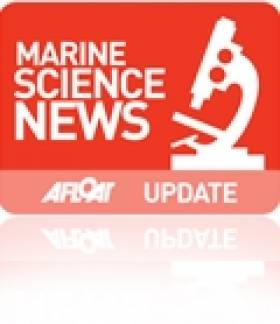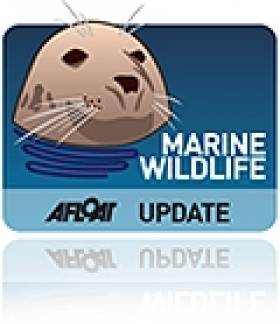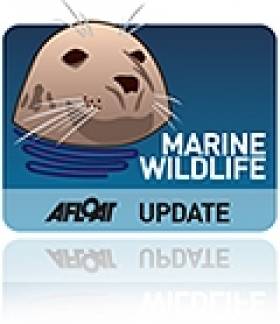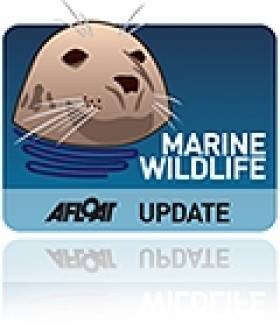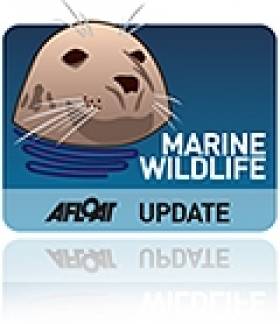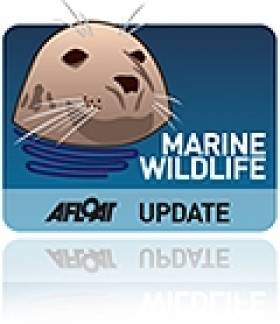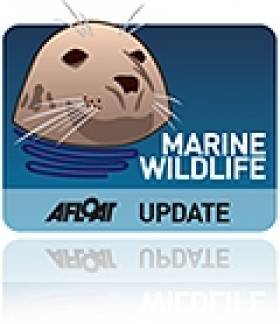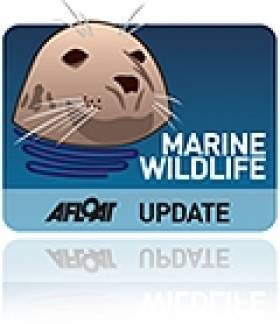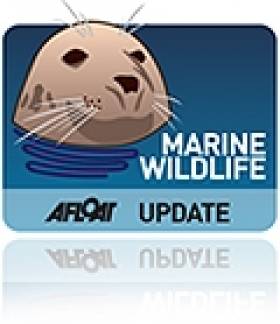Displaying items by tag: Irish Whale and Dolphin Group
Celtic Mist Offered as Gift to IWDG
The yacht sailed by late former Taoiseach Charles Haughey has been offered as gift to the Irish Whale and Dolphin Group (IWDG) as a research vessel.
The Irish Times reports that 52ft Celtic Mist had been on sale in the Isle of Wight for €175,000 since last year, but with the market at a low ebb, son Conor Haughey invited the IWDG to take over the vessel, subject to negotation.
The IWDG's Simon Berrow said the group's membership showed "overwhelming support" for the gift, and is currently looking into sponsorship to support the yacht for research, as maintenance costs would run around €20,000 per year.
The Celtic Mist was once the subject of some controversy when it emerged during the Moriarty Tribunal that businessman Dermot Desmond had paid refurbishment costs of €75,000, a sum that exceeded Haughey's then salary as Taoiseach.
Summer Whale Watching Courses on Cape Clear
The Irish Whale and Dolphin Group (IWDG) is running a new series of its popular whale watching courses on Cape Clear in Co Cork this summer.
The first weekend course from 8-10 July 2011 caters for adults keen to learn more about whales and dolphins in Irish waters and how to observe, record and identify them. It will feature a mixture of workshops and field trips, including cliff and boat-based whale watches.
Admission for this course is €70 for IWDG members (€90 for non-members). Please note that this fee does not cover transport to Cape Clear, food or accomodation, or any boat trips. As the itinerary will be weather-dependant, some flexibility will be required.
Places are also limited to 20 per course on a first-come-first-served basis. Booking requires a non-refundable deposits of €25 to be paid by cheque or postal order to the IWDG.
For bookings and enquiries contact IWDG sighting co-ordinator Pádraig Whooley at [email protected] or 023 883 8761.
Record Dolphin Strandings 'Inexplicable'
There is growing concern over the rising number of dolphin deaths along Ireland's south coast, the Irish Examiner reports.
The Irish Whale and Dolphin Group (IWDG) announced that a record 19 common dolphins washed up dead in Cork, Waterford and Wexford in January and February of this year alone - 17 more than in the same two months of last year.
Padraig Whooley of the IWDG said the deaths were "inexplicable", noting that there were no obvious signs of injury.
He added that the IWDG did not have the resources or funding to carry out the necessary post-mortems to determine the cause of death, which could be viral in nature.
The Irish Examiner has more on the story HERE.
Fáilte Ireland in Whale Advert Gaffe
Fáilte Ireland has come under fire for an advert that shows a whale that cannot be found in Irish waters.
According to the Irish Examiner, the Irish Whale and Dolphin Group (IWDG) has questioned by images of humpback or fin whales, which are a common sight off Ireland's coast, were not used instead.
The IWDG'sSimon Berrow said: "It’s great that we are promoting marine tourism but if we are serious about it, let’s do it properly."
Last year Fáilte Ireland was criticised for a similar advertisement that used stock footage of a whale species not found in Ireland.
The Irish Examiner has more on the story HERE.
Ireland Sees Largest Aggregation of Killer Whales
The Irish Whale and Dolphin Group (IWDG) has announced the largest aggregation of killer whales to date in Irish waters.
As many as a dozen killer whales, or orca, were spotted close to an Irish Naval Service vessel on patrol 30 miles off Tory Island in Co Donegal late last month.
According to Lt Cmdr Paddy Harkin of the LE Niamh, the killer whales were feeding among large shoals of mackerel that also attracted a large number of fishing vessels.
He added that the whales had apparently followed the mackerel from west of the Hebrides in north west Scotland, according to several fishing skippers - who placed their numbers at over 100.
The IWDG has more on the story (including photos) HERE.
Aerial Survey of Whales Begins
The first ever Air Corps marine animal survey of whale and dolphin activity in Irish waters is set to begin today, the Irish Times reports.
A survey team accompanied by members of the Irish Whale and Dolphin Group (IWDG) were scheduled to take off from Casement Aerodrome this morning headed for the southeast coast, where humpback whales have recently been sighted near Curracloe and Hook Head.
According to the IWDG, 19 whale and dolphin species have been recorded in Irish waters since 1948, the most common sightings being harbour porpoises.
The Irish Times has more on the story HERE.
New Humpback Whale in Irish Waters
The Irish Whale and Dolphin Group (IWDG) has reported the sighting of a humpback whale new to Irish waters.
Andrew Malcolm of the IWDG along with Martin Colfer spotted the whale just west of Dunmore East - a year after the first sightings of 'Hooky' who gave whale-watchers a treat in the early part of 2010.
Malcolm confirmed that this humpback was indeed a new addition to the Irish catalogue. He described it as behaving "in a very co-operative manner" and noted that it "regularly 'fluked' in front of the boat".
Click HERE for more on the story, including some spectaular images.
Vets Get to Grips With Whale, Dolphin Post-Mortems
The Irish Whale and Dolphin Group's (IWDG) recent workshop on the post-mortem examination of stranded dolphins and whales is hoped to encourage the building of much needed experience for Ireland's vets dealing with marine animals.
More than 20 veterinarians from across the country attended the workshop in Athlone, where they were shown how to carry out a post-mortem from a research perspective and taken through the post-mortem protocol, as well as the collection of samples for various parameters from bacteriology to genetics.
"The IWDG have long advocated that the post-mortem examination of stranded cetaceans should be carried out by veterinary pathologists to determine their cause of death and provide samples for life-history studies," said the group's Dr Simon Berrow.
Fin Whales Captured on Video
The Irish Whale and Dolphin Group (IWDG) has posted photos and video of last weekend's fin whale research expedition off the coast of Co Waterford. SEE VIDEO BELOW
The group encountered a number of fin whales feeding between Hook Head and Helvick Head, and got close enough to two whales swimming near the shore to take clear photos and a biopsy sample.
Another biopsy was taken from a group of three whales feeding just below the surface close to Dungarvan.
"These whales were swimming in water just 15m deep. For an animal whose body length is 20m, this was a surprising discovery," said the IWDG's Conor Ryan.
The Irish Independent reports that the majority of fin whale sightings normally come from Cork and along the western seaboard, but most recent spottings have been from further east in Waterford and on the Wexford coast.
Removal of Whales to Cost Council €10,000
The pod, which had been observed in waters between Arranmore Island and Burtonport during the week before they stranded themselves on a beach on Rutland, were also believed to be the same pod monitored off the South Uist, off the Hebrides. Shortly before that it was feared that the whales may have also attempted to beach themselves.
Dr Simon Berrow of the Irish Whale and Dolphin Group (IWDG) said he could not rule out sonar interference for confusing the whales and leading to their beach deaths. For information on the IWDG logon to www.iwdg.ie



























